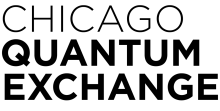Quantum Science, Networking, and Communications
Learn the skills necessary to break into the emerging field of quantum science. This online course features faculty feedback, simulations, and hands-on experiences.
Get in Touch Customize for Organizations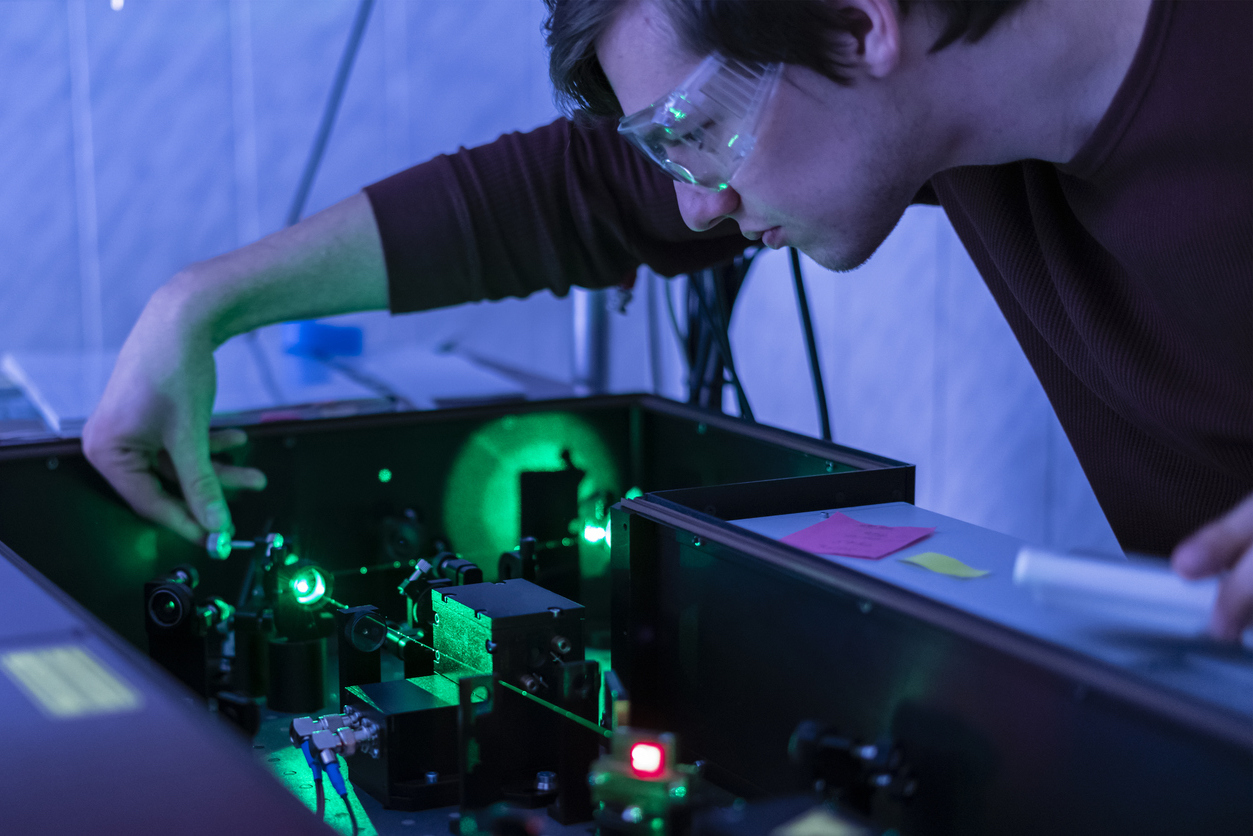
Upcoming Dates
Winter course start
Upcoming Events
At a Glance
- Enrollment:
- Open enrollment
- Length:
- 8 Weeks
- Format:
- Online
- Investment:
-
$2,250Early bird rate available
Launch Your Career into the Quantumsphere
Quantum technologies are transforming how people live, work, and play. Acquire the communication, networking, and programming skills that are revolutionizing industries and reshaping our future.
Advance Science and Your Career with In-Demand Quantum Skills
UChicago is a leader in Quantum. Our eight-week online course in Quantum Science, Networking, and Communications is offered by the University of Chicago’s a Pritzker School of Molecular Engineering and managed by the Chicago Quantum Exchange, an industry leader in quantum computing. Uniquely positioned within one of the nation's largest quantum hubs, this course prepares you to enter the quantum field through rich, hands-on experiences, demonstrations, and simulations.
In this online course, you’ll learn many key skills necessary to either find a position in this emerging field, better explain quantum computing, or help push quantum computing forward within your role.
Quantum learning that meets your needs
In classes held twice a week, you will interact directly with advanced quantum technologies and leaders in quantum research from UChicago and the University of Illinois Urbana-Champaign in partnership with the NSF Quantum Leap Challenge Institute for Hybrid Quantum Architectures and Networks (HQAN). As our course instructors deliver the fundamentals of quantum computing with singular expertise, they will support your work with discussion and feedback. Each week, you will learn a new module in quantum computing with the course culminating in the simulation of a mutli-node quantum network.
Designed For
This course is ideal for early-career participants with less than ten years of professional experience and a bachelor’s or graduate degree in math, physics, statistics, electrical and computer engineering, or computer science. Midcareer professionals seeking to transition into the quantum field will also benefit from this course.
Enroll early and save.
Secure your spot today and take advantage of our early registration reduction:
- Save 5% when you register by January 12.
Invest in your growth today. Enter quantum-eb at checkout.
Quantum Engineers Needed—Answer the Call
Quantum science will transform networking and communications—and, accordingly, how companies in every industry operate. As financial services, telecom, consulting, logistics, biotech, and other industries enter the quantum space, they require qualified professionals from a variety of scientific backgrounds with advanced skills to lead them into the future. We designed this online Quantum Communications course to give those with undergraduate or graduate degrees in physics, computer science, engineering, and math the skills needed to break into this high-demand field and fill the need for groundbreaking professionals to transform science and enable technologies never thought possible.
Course perks:
- Train to be part of the high-demand quantum-ready workforce.
- Participate in hands-on demonstrations, experiences, and simulations.
- Transfer classroom learning into skills required for the field.
- Receive live engagement and feedback from top quantum instructors.
- Learn a new module in quantum computing and networking each week.
- Learn from leaders working in one of the largest quantum hubs.
- Be part of life-changing work that is revolutionizing the tech of tomorrow.
- Experience the many benefits of a top-tier school, including resources and networking.
- Managed by the Chicago Quantum Exchange.
- Convenient online format with completion in eight weeks.

We Are Building a Quantum-Ready Workforce. Ready to Join Us?
Enroll TodayDemonstrated. Simulated. Hands-on Quantum Experience.
This unique online course consists of weekly synchronous sessions alongside asynchronous videos, coursework, and assessments. You will gain an understanding of the basic tasks that are possible on a quantum network; the essential components of quantum networks and how they function together; the different types of physical qubits and quantum systems used in quantum networks; and how to design quantum circuits and remotely implement them using online hardware. This includes communication primitives, such as superdense coding, superposition, and quantum key distribution; entanglement swapping and how quantum repeaters work; and how to combine layers of control protocols to create a functioning quantum network.
Learning objectives:
In eight weeks of live sessions and self-paced modules, students will acquire the theoretical and practical fundamentals of quantum computing and communications. After completing the course, students will be able to:
- Apply the fundamental framework of linear algebra to perform calculations (e.g., expectation values, state vector evolution, decoherence times, etc.) essential to quantum networking, computing, and communications applications.
- Analyze, execute, and debug Python code as they implement various quantum circuits using Qiskit software. Also, implement various quantum communication and network protocols, such as quantum teleportation, superdense coding, entanglement distribution, and quantum key distribution (QKD), using SeQUeNCe software.
- Explain the physical components used in quantum networks, like superconducting and trapped-ion qubits, photonic quantum channels, and quantum repeaters.
- Identify the various layers and protocols defined by and utilized in quantum communication networks.
Earn a Credential in Quantum Science
After successful completion of this course, students will receive credentials certified by the University of Chicago, including a certificate of completion and a digital course badge to recognize their achievement.
Get quantum ready at UChicago
Online Quantum Communications Course Structure
Prerequisites
A bachelor's degree in math, physics, statistics, electrical and computer engineering, or computer science is strongly recommended. The following competencies in particular will be required to be successful in the course:
- Linear algebra: Able to perform matrix operations including addition, subtraction, and multiplication. Participants should also know what eigenvectors are and be familiar with singular value decomposition.
- Probability theory: Able to calculate conditional probabilities.
- Python programming: Able to use Jupyter notebooks to read, understand, and write simple programs in Python.
Quantum Science course schedule
The first class meeting is based on the first day of the course (not the first synchronous session). The course's live synchronous sessions are held every Tuesday and Thursday from 7:00 p.m. to 8:00 p.m. CST. All required assignments are typically due one week after the final scheduled synchronous session. The time commitment per week is four to five hours.
Includes articles (academic journals, textbooks, chapters, professional publications, etc., and videos or other multi-media content) to serve as a refresher for linear algebra and downloadable instructions for installing Python, Qiskit, and Sequence.
The second week focuses on the fundamentals and principles of quantum information. Students will learn about the different types of application protocols for quantum networks and the mathematical formalism of qubits, Bloch sphere, and quantum evolution.
Key topics include:
- Prominent quantum communication tasks such as quantum key distribution (QKD), blind quantum computing, clock synchronization, secret sharing, and long-baseline telescopy
- Quantum systems like finite-dimensional vector spaces, kets/bras, and unitary and Hermitian matrices
- Qubits as the basic building block of quantum information systems, Pauli operators, and the Bloch sphere representation of qubits
Expanding on the previous week’s lesson, students will learn how to compute expectation values for quantum measurements on entangled systems and to understand the density matrix and basic noise models.
Key topics include:
- Born’s rule for quantum measurement
- Entangled systems and gates
- The density matrix and mixed versus pure states
The fourth module focuses on the basics of quantum programming. Students will learn how to use Qiskit programming software. They will design quantum circuits and remotely implement them on IBM hardware. Through hands-on programming, students will learn basic quantum algorithms.
Key topics include:
- Simon's algorithm and Grover's algorithm
- Quantum circuit model
- Qiskit syntax
The fifth module focuses on quantum communications. Students will learn the properties of quantum entanglement, the use of quantum entanglement in quantum communication, and communication primitives such as superdense coding, teleportation, and quantum key distribution.
Key topics include:
- Bell states and Bell measurements
- Superdense coding and teleportation like entanglement-enhanced communication tasks
- Quantum key distribution in the BB84 protocol and entanglement-based schemes (measurement device-independent QKD)
The sixth module expands on the quantum communications concepts introduced the previous week. Students will learn how to explain the principles of entanglement swapping, how quantum repeaters work, and the basic concepts of entanglement purification.
Key topics include:
- Entanglement fidelity and recurrence protocol
- Quantum error correction and entanglement distribution
- Achieving long-distance quantum communication
The seventh module focuses on quantum network hardware. Students will learn about the essential components of a quantum network and how they function together. They will connect theoretical protocols with hardware deployment and explore the different types of physical systems used to encode qubits and perform quantum communication.
Key topics include:
- Network components such as memories, repeaters, photon sources, detectors, and interconnects
- Physical systems such as photons, SC qubits, atoms, and color centers
- Standard performance metrics for network devices such as coherence times, channel loss, detector efficiency, and transmission fidelity
The final module focuses on quantum network protocols and simulation. Students will learn how to apply all the components of the course in a simulation of a multi-node quantum network.
Key topics include:
- The effects of noise and decoherence on quantum communication protocols
- Realistic quantum networks and syntax for SeQUeNCe simulator
- Working through a multistep protocol of teleportation or QKD by specifying memory fidelity
Seats limited. Possibilities endless.
Gain Powerful Skills with the Leader in Quantum—UChicago
Few professionals can say their career transforms how people live, work, and play. Life-changing work that impacts virtually every area of our lives is within the quantum science career path. Quantum engineering has the power to transform cybersecurity, materials development, computing, and other research areas, and companies in the communications, electronics, optics, and materials industries in particular are examining how to quickly and effectively build a quantum-ready workforce. UChicago's online quantum course prepares you to meet these industry needs.
Transform a rapidly emerging field
Industries like cybersecurity, telecommunications, finance, and healthcare are increasingly integrating quantum technologies into their operations. As a result, professionals with expertise in quantum science, networking, and secure communications are in high demand. By completing this unique online course, you’ll have the opportunity to join this fast-growing field and contribute to innovative solutions that will shape the future of technology.
The global quantum computing market expected to reach $65 billion by 2030.
McKinsey projects that quantum computing could generate $2 trillion in economic gains by 2035.
Informative articles on the quantum industry
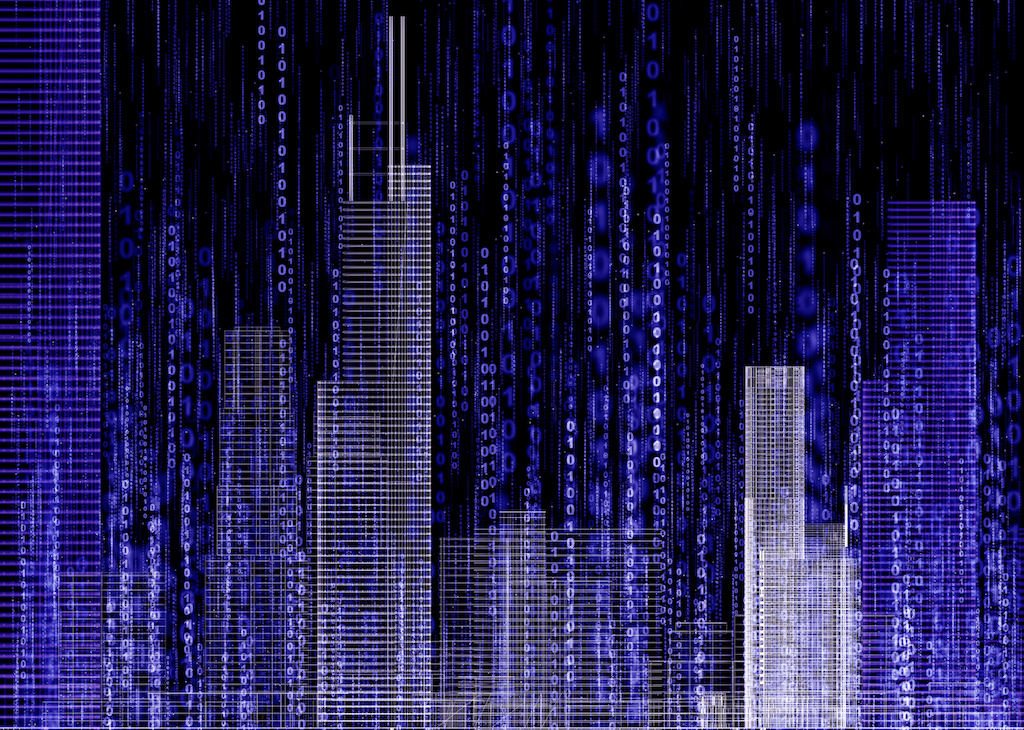
The Quantum City
Chicago’s quantum surge exposes a growing national talent gap in the field.
Explore Further
Quantum Tech Jobs Growing Fast
A new CQE analysis shows that fewer than half of quantum jobs need PhDs.
Find Out More
Quantum Paradigm Shift
Harnessing the principles of quantum mechanics and shaping the future of technology.
See Full Article
Future-Proof Your Career
Enroll TodayMeet Your Instructors
Professors for the Quantum Communications course work at the forefront of quantum technology and bring their leading-edge research to the classroom. Faculty and instructors from the University of Chicago and the University of Illinois at Urbana-Champaign will guide you through the fundamentals of quantum communications, while providing you with support and feedback.
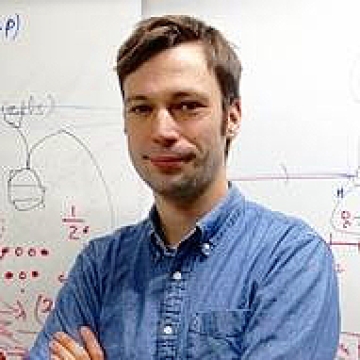
Hannes Bernien, PhD
Assistant Professor of Molecular Engineering, University of Chicago
Hannes Bernien is an Assistant Professor of Molecular Engineering at the University of Chicago. He studies quantum many-body physics and quantum information processing, and seeks to develop new ways of engineering large, complex quantum systems.
Professor Bernien’s research combines techniques from...
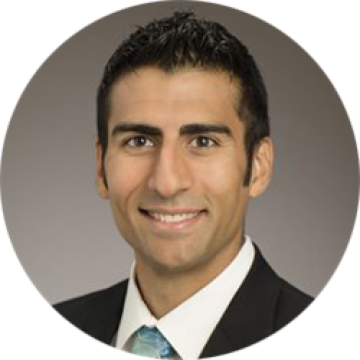
Eric Chitambar
Associate Professor of Electrical and Computer Engineering, University of Illinois: Urbana-Champaign
Eric Chitambar leads the Chitambar Quantum Information Group at the University of Illinois, a research group that studies the mathematical theories and practical applications of quantum entanglement and other fundamental quantum phenomena. As Associate Professor of Electrical and Computer...
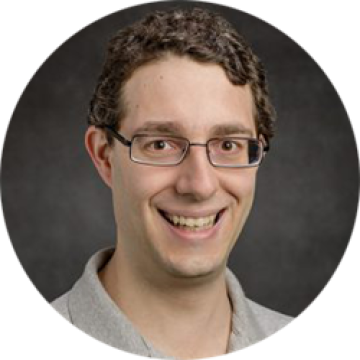
Bryan Clark
Associate Professor of Condensed-Matter Physics, University of Illinois: Urbana-Champaign
Bryan Clark focuses on areas of computational condensed matter, quantum algorithms, and quantum circuits. He works on developing quantum algorithms for simulating quantum systems including automatically generating circuits to diagonalize Hamiltonians, developing ways of simulating condensed matter...
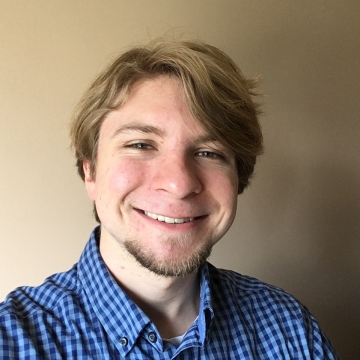
Alex Kolar
Researcher, Zhong Lab, University of Chicago
Alex Kolar is a PhD student in Quantum Engineering in Dr. Tian Zhong's lab at the University of Chicago. He studies quantum hardware control systems as well as quantum network simulation.
Kolar’s research focuses on leveraging emerging quantum technology and classical computing resources to develop...
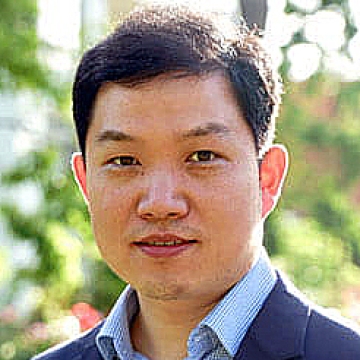
Tian Zhong, PhD
Assistant Professor of Molecular Engineering, University of Chicago
Tian Zhong is an Assistant Professor of Molecular Engineering at the University of Chicago. His areas of research expertise are in quantum photonics, quantum information and networking, solid-state quantum technologies, and hybrid quantum systems.
Professor Zhong’s research focuses on developing...
How to Register
Students must register for the online quantum course to be considered for enrollment. Please follow these steps to ensure that you successfully register for the course:
- Log into UChicago's course registration portal by creating an account using your username and password.
- Navigate to the "Course search" tab and search for "Quantum Science."
- Look for the course with the title "Quantum Science, Networking, and Communications" (Course ID: QUAN11021) and select the course listing.
- Once you locate the course, click on "Add to Cart" to include it in your course selection. Make sure to check the course schedule, prerequisites, and class capacity before proceeding.
- Review your course selections and click on "Proceed to Checkout" to complete the registration process.
By enrolling in this course, you are consenting to a required screening process to ensure your course eligibility per U.S. export control laws. A form will be emailed to registrants upon confirmation of enrollment and their tuition is paid in full. Once this review has been completed, you will receive an update on your enrollment status informing you of next steps. Please allow 5-7 business days to complete this step.
The University of Chicago reserves the right to remove and refund registrants who do not meet the compliance requirements necessary to participate in this course. All students must be screened in adherence to U.S. export control laws, which govern the transfer or disclosure of goods, technology, software, services, and funds originating in the United States to persons or entities in foreign countries OR to non-U.S. persons, even if located in the United States.
Cancellation Policy
The University of Chicago reserves the right to remove and refund registrants who do not meet the compliance requirements necessary to participate in this course. All students must be screened in adherence to U.S. export control laws, which govern the transfer or disclosure of goods, technology, software, services, and funds originating in the United States to persons or entities in foreign countries OR to non-U.S. persons, even if located in the United States.
| Full Refund | To obtain a full refund, registrants need to notify UChicago Professional of cancellation 5 business days or more prior to the first class* meeting (i.e., section start date/ time). If an applicant fails the compliance screening, or if the course is canceled by the University of Chicago, the student will receive a full refund. |
|---|---|
| Partial Refund | To obtain a refund minus a cancellation fee (10% of the course tuition), registrants need to notify UChicago Professional of cancellation less than 5 business days and no more than 24 hours after the first class* meeting (i.e., section start date/time). |
| No Refund | No refund will be given to registrants if they notify UChicago Professional of a course cancellation greater than 24 hours after the first class* meeting (i.e., section start date/time), unless the course has been cancelled by the University of Chicago. |
Notification Procedure
Failure to attend a course does not entitle a registrant to a refund. Students must call UChicago Professional at 773.834.2964 for cancellation.
Reserve Your Spot Today
Contact Us
You may request more information about the course in quantum science to have an enrollment advisor reach out to you.
Special group rates
To enroll a group, please contact our admissions team.
- Chicago Quantum Exchange (CQE) member and partner institution participants receive a 10% tuition reduction.
- CQE member and partner institutions are eligible for a 20% tuition reduction for groups of three or more.
- All other organizations are eligible for a 10% tuition reduction for groups of three or more.
*Special tuition rates are not stackable. Qualified course registrants will receive the greater reduction between CQE member/partner, early bird, and group rates.

Learn by Doing—Quantum Reimagined at UChicago
Enroll TodayMeet Our Quantum Network
The Chicago Quantum Exchange (CQE) is an intellectual hub in the Midwest that connects leading universities, national labs, and industry partners to advance the science and engineering of quantum information, train the future quantum workforce, and drive the quantum economy.
The CQE is based at the University of Chicago and anchored by the US Department of Energy’s Argonne National Laboratory and Fermi National Accelerator Laboratory, the University of Illinois Urbana-Champaign, the University of Wisconsin–Madison, Northwestern University, and Purdue University. The CQE community includes more than 50 corporate, international, nonprofit, and regional partners and is one of the largest collaborative teams working on quantum science in the world.
The Pritzker School of Molecular Engineering (PME) integrates science and engineering to address global challenges from the molecular level up. In the University of Chicago tradition of rigorous inquiry, we ask crucial scientific questions that have real-world implications. Our work applies molecular-level science to the design of advanced devices, processes, and technologies. Organized by interdisciplinary research themes, we aim to develop solutions to urgent societal problems, such as water and energy resources, information security, and human health.
The program was established as the Institute for Molecular Engineering in 2011 by the University in partnership with Argonne National Laboratory. In 2019, in recognition of the institute’s success, impact and expansion, and the support of the Pritzker Foundation, the institute was elevated to the Pritzker School of Molecular Engineering—the first school in the nation dedicated to this emerging field.
The NSF Quantum Leap Challenge Institute for Hybrid Quantum Architectures and Networks (HQAN) features three quantum testbeds that will collaboratively develop the technology needed to assemble a hybrid quantum processor and network. Each laboratory is designed with multiple kinds of quantum hardware, which will be used to demonstrate distributed quantum processing and communication protocols. The program integrates engineering, computing, and physics expertise to achieve HQAN’s scientific, technology, and education goals. The HQAN center also includes workforce development initiatives that will inspire and train students who will contribute to the future quantum technology and innovation ecosystem.
Offered by The University of Chicago's Pritzker School of Molecular Engineering

